Salt and Subsidence
Cheshire, county of cheese and invisible cats, is supported by two strata of salt. Salt been produced here since Roman times. Where an aquifer met the salt and then came to the surface the result was brine springs. The Romans diverted these into lead pans with a fire underneath. The salt crystalized out as the water boiled off. As you probably know, our words salary and salad come from the Latin word for salt.
Over the years, the pans got larger and less toxic…
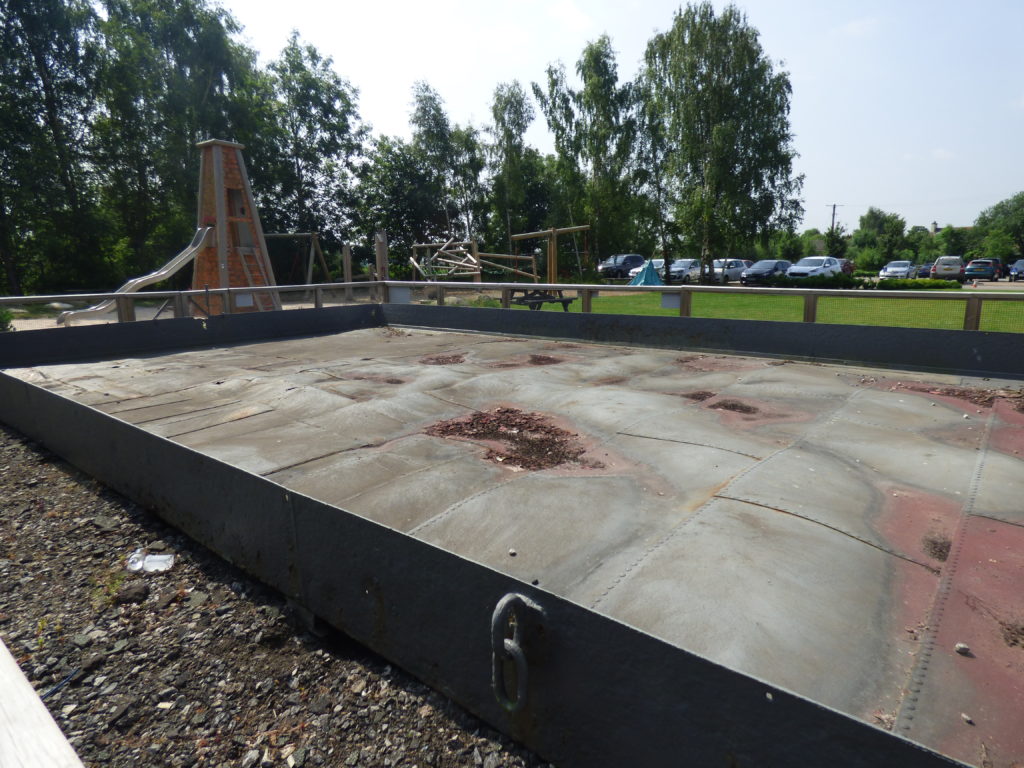
… and the Cestrians (yep, thats the word for people from Chester and by extension for people from Cheshire. It’s pronounced SES-tree-an, which sounds like a race of evil aliens from the pre-reboot Doctor Who, played by midgets in rubber suits…) as I was saying, the Cestrians became more creative in getting the salt out of the ground. They dug wells to pump up the brine from the aquifers…
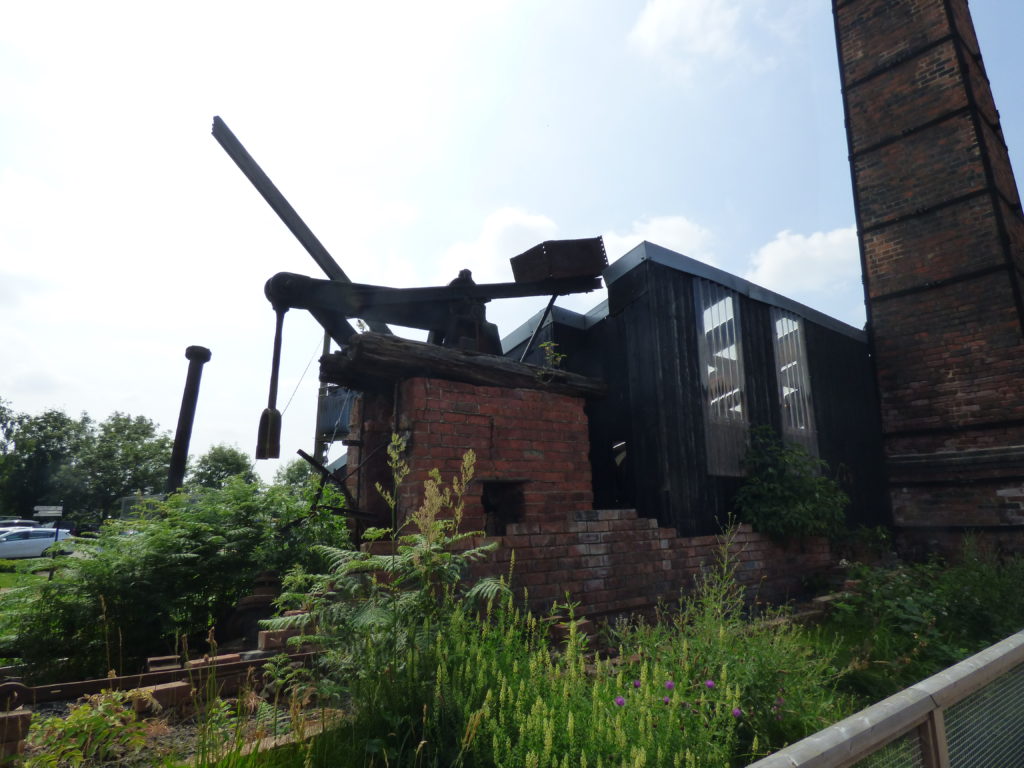
… and then as mining technology improved, dug pits like coal mines and started excavating the rock salt strata. We’ll get around to what happens when you hollow out large parts of a county in a bit.
These days salt is separated from water by using huge pans in a warm climate (like Inagua for our Bahamian friends, and the south end of San Francisco Bay for our California friends) or by using a vacuum to cause the water to boil off at room temperature. The open pan factories have been closed down. One of them, the Lion Salt Works, which closed in 1986, has been preserved as a museum, with a little help in 2004 from Griff Rhys Jones’ TV show Restoration.
We turned up at the museum at opening time, and were told there was a guided tour starting in half an hour. However, our charming volunteer guide, George, started the tour early rather than keep us waiting, since he didn’t think anyone else would turn up. Since we were the only people on the tour we spent some time chatting with George as well as learning all about salt manufacture from him. It turns out that he used to work for the same steel company that my dad worked for, Stewarts and Lloyds.
Salt production was hot work. The salt pans were rented out to families who would be responsible for keeping the coal fire going, and scraping out and packing the salt.
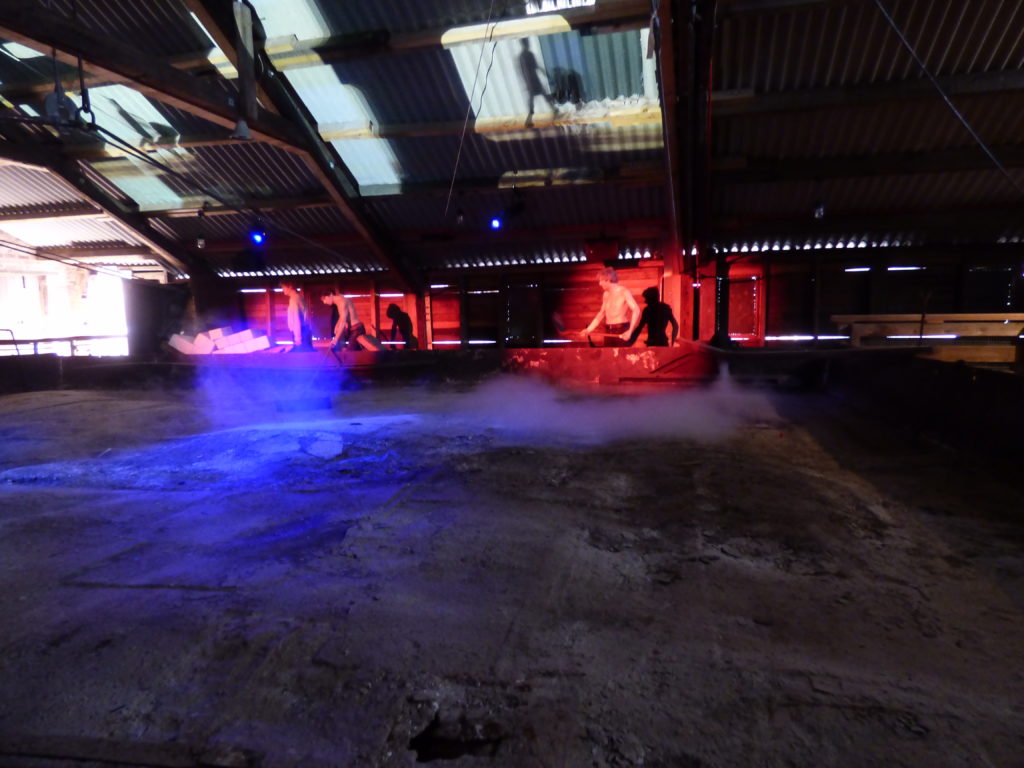
Originally the men and women would work together, the men stripped to the waist and the women in their underwear, but this was too much for Victorian reformers, so the jobs were segregated, and the women relegated to the more ladylike work of running the crushing machine…
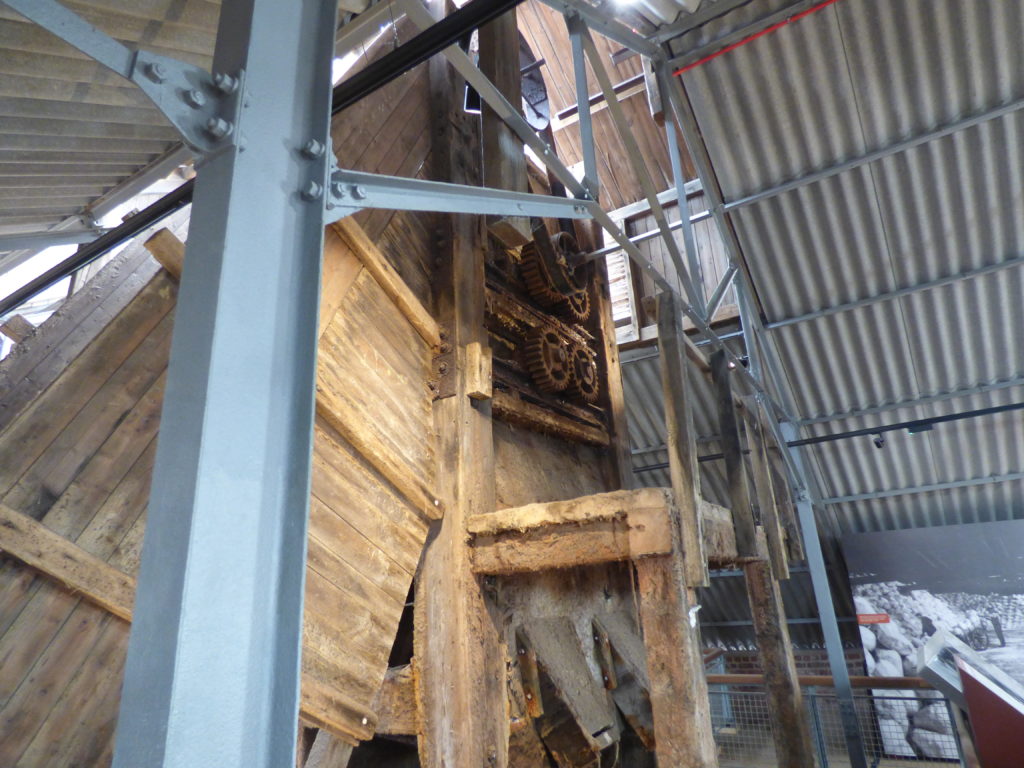
…and womanhandling the eighty pound bags of salt.
The salt strata are interleaved with layers of marl like layers in a layery thing. [Sentence needs work.] Marl is fairly soft, so when you take the salt out the ground falls in. This happened most notably in the town of Northwich.
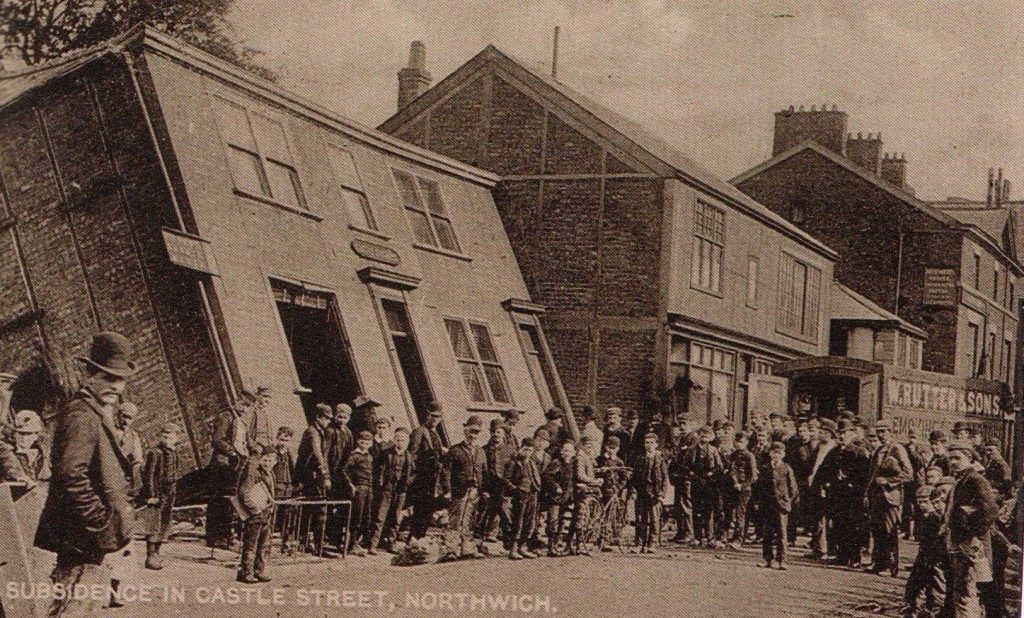
Photo from the Visit Northwich website, which has a whole page on Northwich’s exciting history of subsidence (pronounced sub-SIGH-dense or SUB-see-DENSE depending on taste). It’s a little weird that they are advertising their industrial disasters, but heh, this is the North. From about 1900 to the early 2000s all buildings in Northwich had to be constructed so that they could be jacked up or even moved if the ground gave way underneath them. Finally the old salt mines were filled with industrial waste from power stations, and the town is now considered stable enough for major construction projects. Subsidence is a problem in the rest of Cheshire as well. Even the canal bridges are constructed with a horizontal central section that can be jacked up if one or both sides of the bridge starts to descend.
South of the salt works the canal passes through the Tata Chemicals plant, which I will let speak for itself. 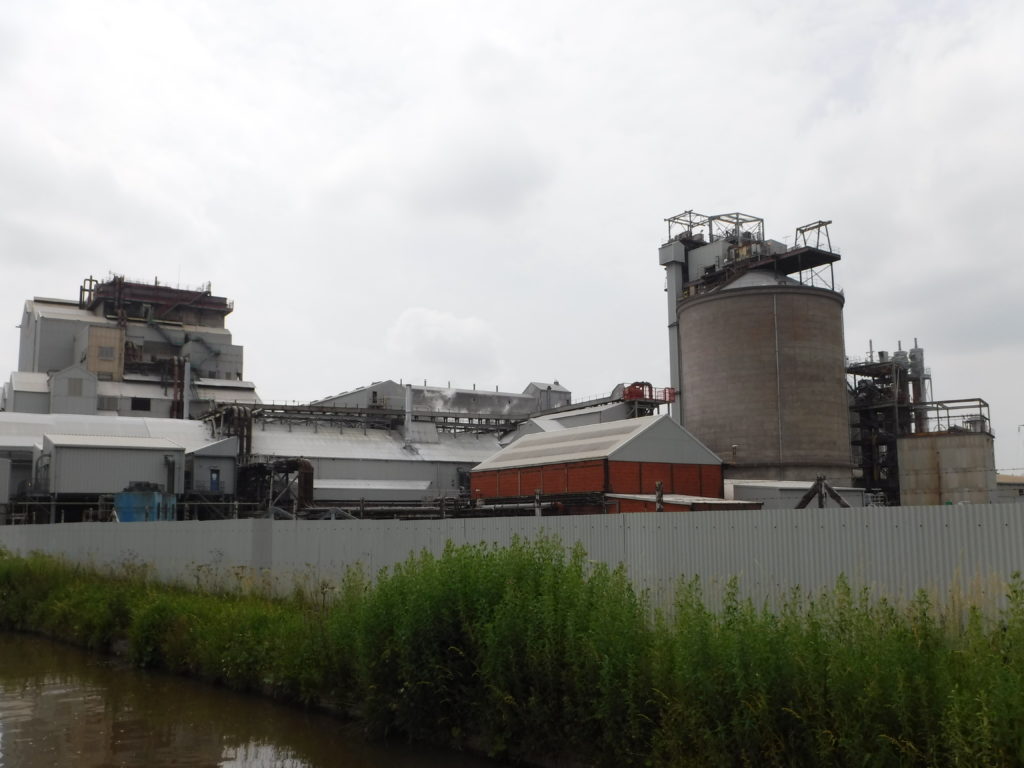
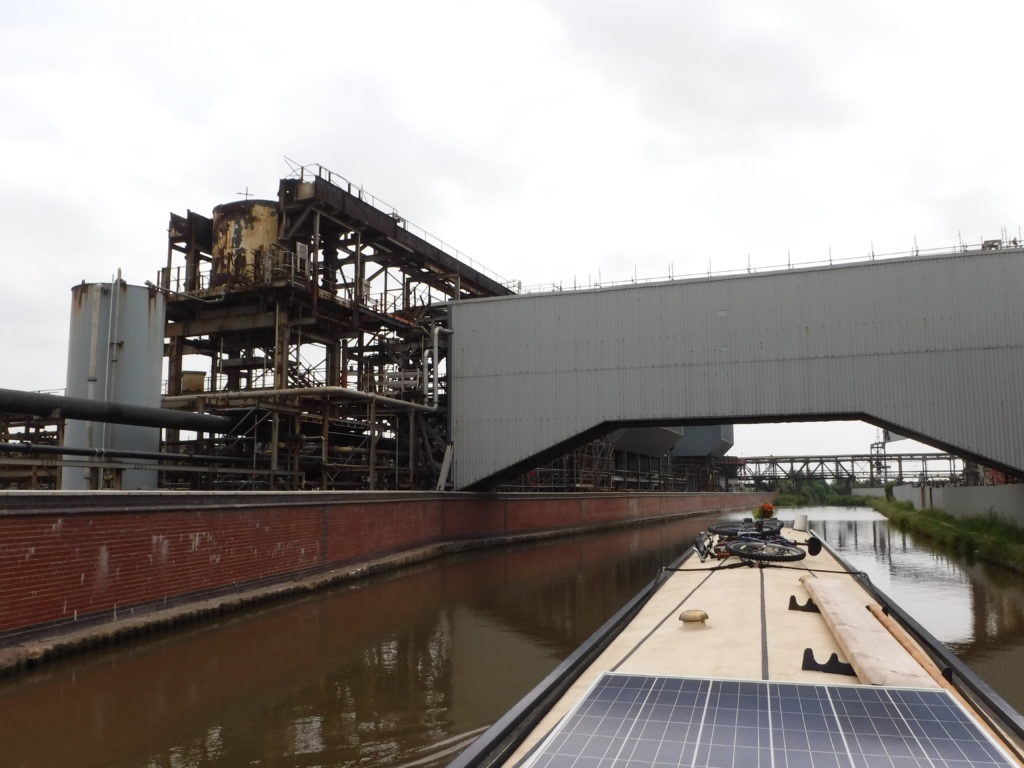
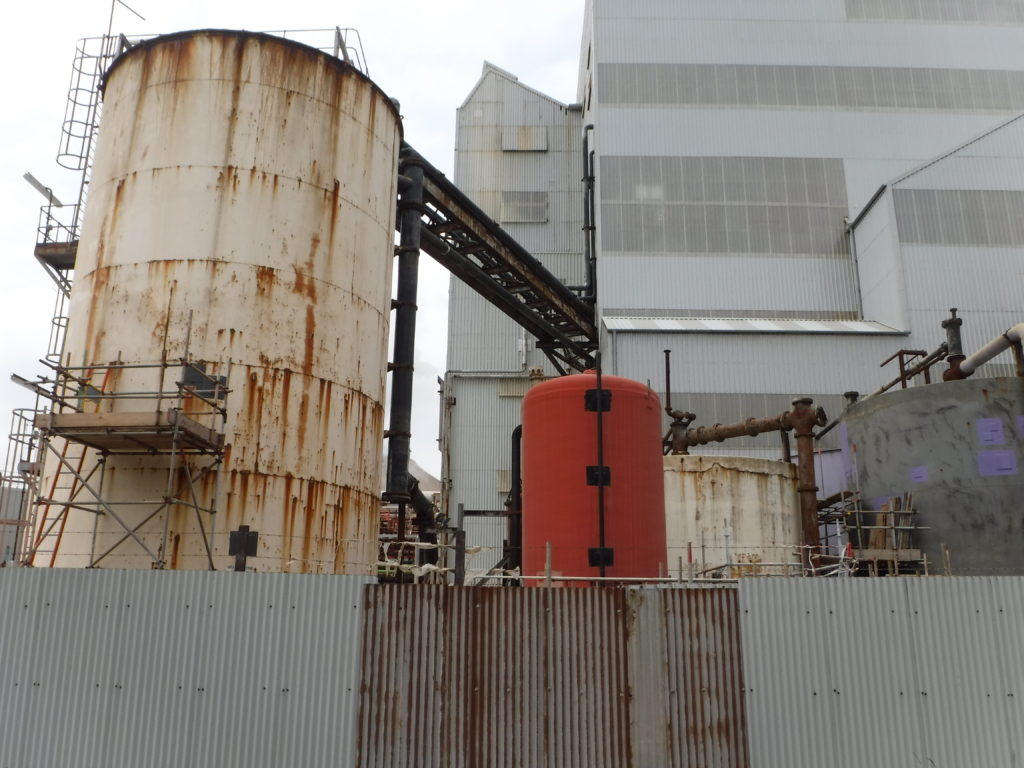
A chemical plant consists of vats where reactions happen and pipes connection them. If you want to hack a chemical plant, all you have to do is move the reactions into the pipes. I wonder how many industrial control systems are running on Windows 95?
We got to Middlewich this afternoon, and went through our first real lock since Wigan. More locks are on the agenda for tomorrow. England is going through a heatwave, which means we are getting weather for which our Bahamian friends would not bother putting on a coat. The universal greeting has changed from “Ow do?” or “Arright?” to “Ot enough for you?”